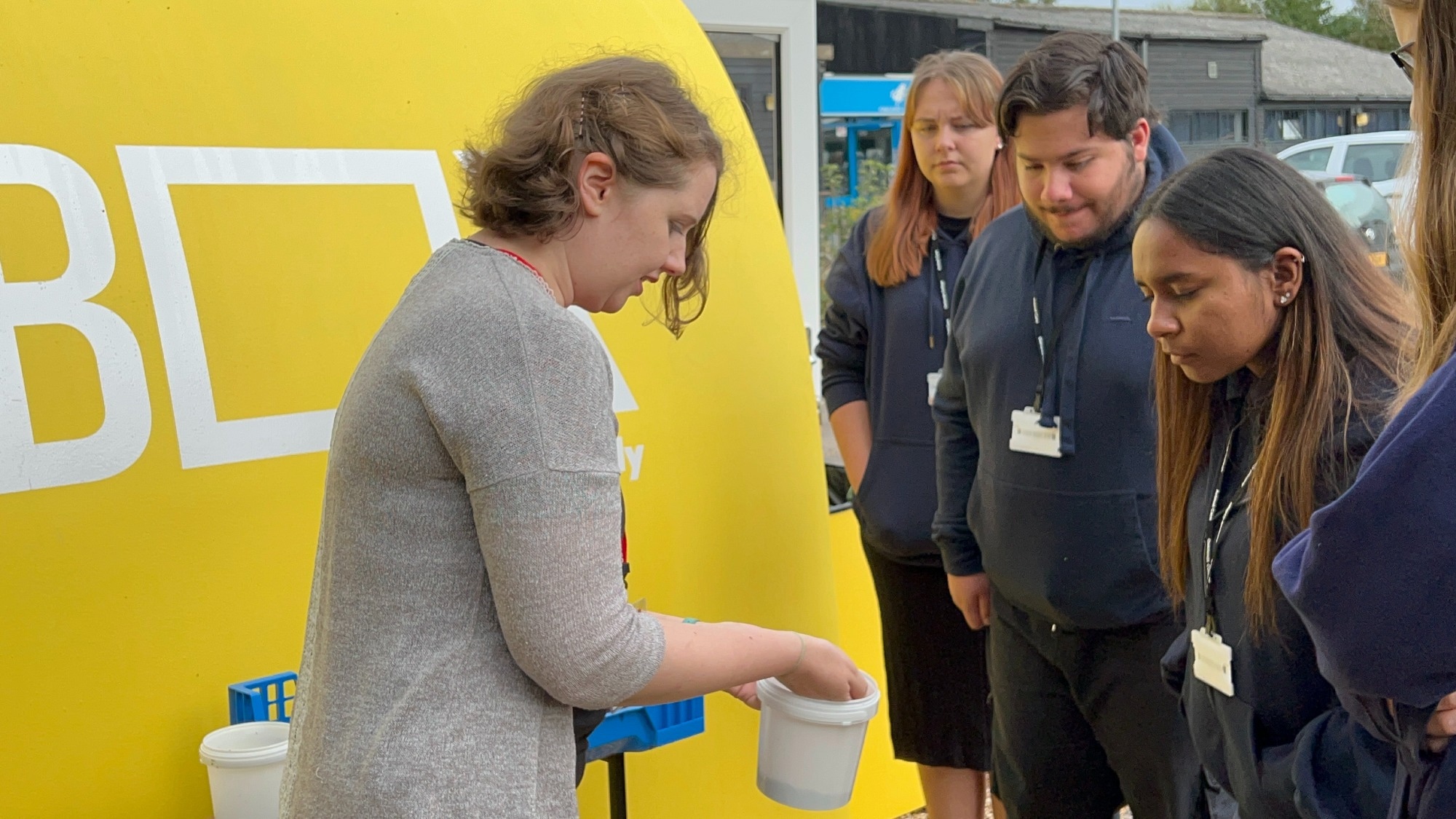As the world grapples with unprecedented food security challenges, Flybox®, the UK’s leading agri-tech innovator, has launched its first modular end-to-end insect farm in Aylesbury, Buckinghamshire. Using modular technology, Flybox® turns organic waste into a new source of sustainable food supply.

Image Credit: Flybox®
Insect farming produces sustainable protein which means livestock farmers are less reliant on environmentally problematic sources like soy and fish meal.
As part of its commitment to the region, Flybox® has set up an interactive, simulated Flybox Grow® at Oaklands College in Aylesbury. Over 200 animal care students were shown how insect farming can avert the 60 million tonne protein shortage expected by 2050.
Our farm in Buckinghamshire, with one Grow® module, converts about 300 tonnes of organic waste into 60 tonnes of larvae and 100 tonnes of Frass fertiliser per year. The Larvae can be used as a sustainable protein replacement for soy in animal feed, the frass for chemical fertilisers to heal soil, not hurt it.”
Larry Kotch, Co-founder and Chief Commercial Officer, Flybox®
Flybox® aims to change the way the UK approaches farming, reducing the UK's reliance on imported feed ingredients, such as soy, and make livestock production more sustainable in a number of ways:
Land Use: Insects need far less land than conventional feeds like soy: each Flybox® Grow produces up to 50+ tonnes of high-quality protein/year, and only takes 40ft of space on a farm.
Emissions: Flybox®’s circular production model will help waste producers to massively lower the emissions associated with food waste. Humans waste 1.6 billion tonnes per year of food waste - that’s 2.2 billion tonnes of CO2 released into the atmosphere, every year. Flybox®’s decentralised insect-farming model saves on emissions that come with transporting large volumes of waste to dump. Flybox® insect-based outputs help agri-food companies greatly lower the emissions of their end product.
Animal Welfare: Fish that are supplemented with insect meal show a 37% higher growth rate and a 23% increase in average weight. Pigs show an increased carcass weight of nearly 30%. Chickens achieve faster growth rates with just a 3% substitution of regular feed and produce heavier eggs with lower levels of cholesterol.
“Our mission is to deploy 1,000 insect farms across the UK by 2027. These 1,000 farms, with an average of 3 grow containers per farm, will save 840,000t of CO2 per year, drastically reducing the carbon footprint from traditional farming methods,” concluded Kotch.